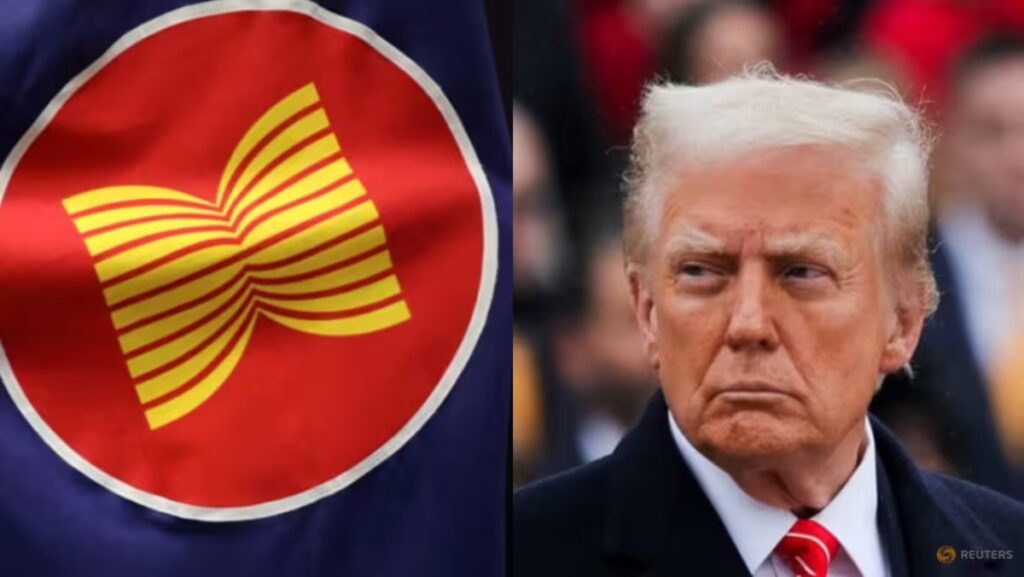Southeast Asian countries are seeking to engage in collective negotiations with former U.S. President Donald Trump over trade tariffs, should he return to the White House, Malaysian Prime Minister Anwar Ibrahim said Monday. The move reflects growing concerns across the region about potential economic disruptions if Trump reinstates or escalates protectionist trade measures.
During a press briefing following a regional economic forum in Kuala Lumpur, Prime Minister Anwar revealed that ASEAN leaders have begun informal consultations aimed at presenting a united front on trade policy.
“We cannot afford to deal with new tariffs on a country-by-country basis. A unified ASEAN voice will be far more effective in safeguarding our shared economic interests,” Anwar stated.
Trump, who is leading in several Republican primary polls and is widely expected to be the GOP nominee for the 2024 U.S. election, has hinted at reviving tariffs on imports, particularly targeting China and countries with significant trade surpluses with the United States. His earlier administration imposed a series of tariffs that reverberated across global supply chains, affecting Southeast Asian economies heavily reliant on exports.
A Preemptive Regional Strategy
The Association of Southeast Asian Nations (ASEAN) – which includes key manufacturing economies such as Vietnam, Thailand, Indonesia, and Malaysia – has grown increasingly wary of global trade headwinds. In response, leaders are exploring a joint framework to engage with future U.S. administrations, advocating for predictable and equitable trade relations.
“ASEAN nations have different strengths, but we share a common vulnerability to external shocks,” said Dr. Lim Hock Chuan, a trade economist at Singapore’s NUS Business School. “A collective strategy could help ASEAN punch above its weight diplomatically.”
According to Anwar, the discussions may culminate in a formal proposal to the U.S. government post-election, outlining mutual benefits of reduced trade barriers and stronger investment flows.
Concerns Over Trump’s Tariff Rhetoric
Trump’s previous tariff policies, especially his trade war with China, resulted in supply chain realignments that partially benefited some ASEAN members as companies sought alternative production hubs. However, fresh tariffs could place the region in a precarious position, particularly if Trump targets countries he believes benefit unfairly from U.S. market access.
“Trump’s transactional view of trade relationships could pose challenges,” said Dr. Nurul Aida of the Malaysian Institute of Strategic and International Studies (ISIS). “He may not differentiate between allies and strategic partners when imposing tariffs.”
Regional Unity Tested
While ASEAN aims for a coordinated approach, experts warn that internal differences — including economic size, political alignment, and levels of dependence on U.S. markets — may complicate a unified negotiating stance. Still, Anwar remained optimistic.
“This is a time to demonstrate regional maturity. If we act collectively, we can protect our economies and continue to engage the U.S. constructively.”
Looking Ahead
With the U.S. election cycle heating up, Southeast Asian governments are monitoring campaign rhetoric closely. While current President Joe Biden has maintained a more multilateral approach to trade, Trump’s potential return could herald a shift toward economic nationalism, prompting early diplomatic maneuvering from U.S. trade partners.
As the world watches the unfolding U.S. political landscape, ASEAN’s strategy signals a growing confidence — and necessity — for the region to act in strategic unison on global economic matters.

